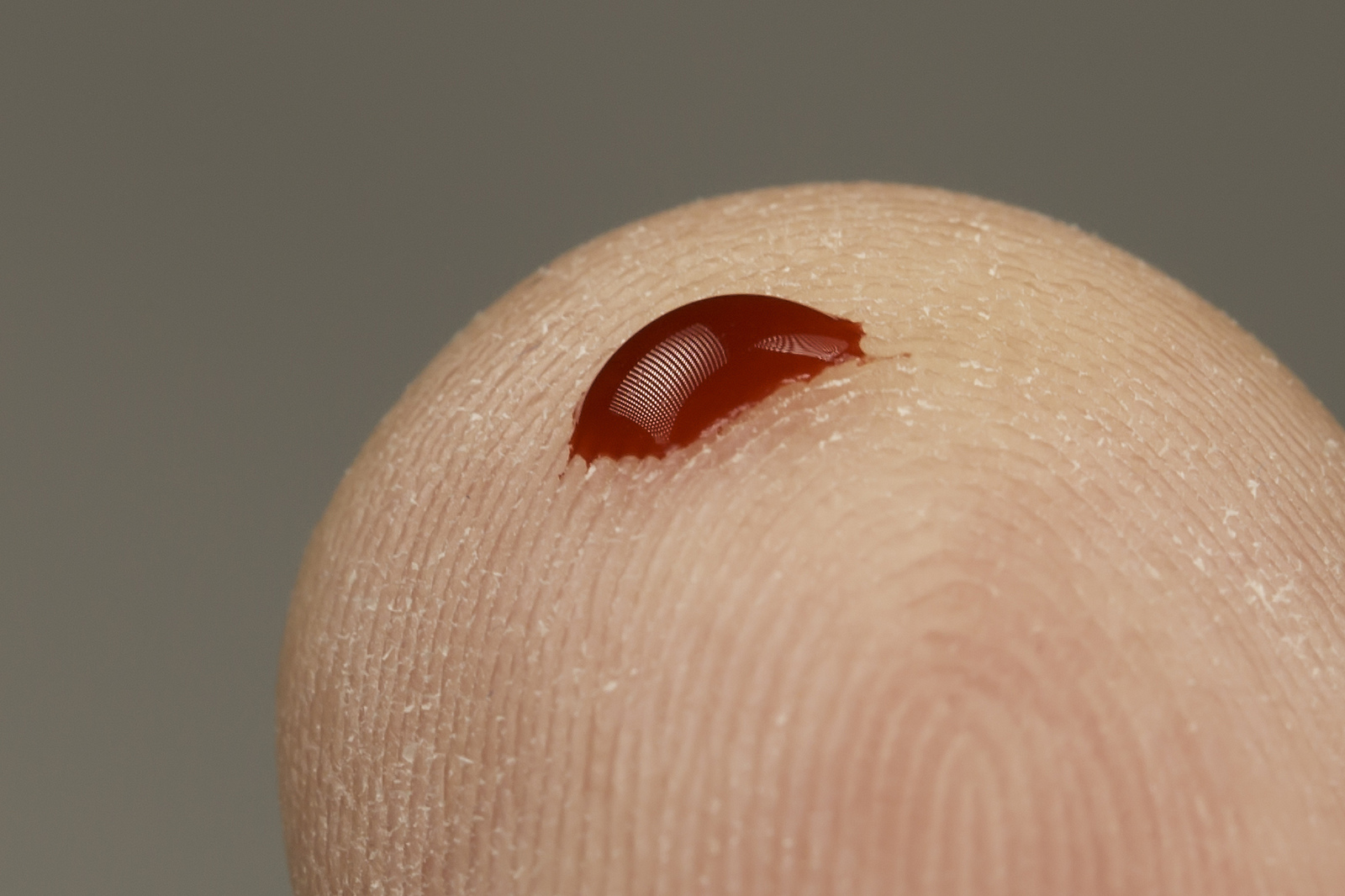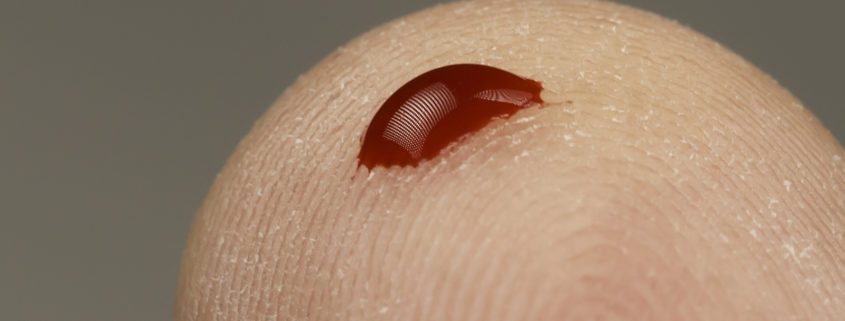Key Questions to Ask Before You Have Bodily Fluids Tested for Athletic and Health “Insights”

Have you been tempted to part with some of your blood, pee, poop, spit, or other bodily fluids for testing to gain insights on how you might optimize athletic performance, sexual prowess, sleep, well-being, longevity, or [fill in the blank here]?
Many companies now offer direct-to-consumer (DTC) lab testing that’s typically not part of routine medical care and doesn’t require a health care provider’s request or approval. The market is rapidly growing as companies target consumers who may seek a more direct, proactive role in their health and well-being.
Should you get a DTC test? What are the potential benefits and risks? Here are some questions to consider before you part with your tissues and money.
Testing Rationale
- What is your reason for getting a test? Do you have a health issue? Are you just curious? Is the question that you’re asking going to be answered by the data that you get?
- What do you plan to do with the information you get? Who will you share it with (no one, family, health care providers, coach, post on social media)?
- If the information warns you of an unexpected health issue, will you be prepared to handle it? Will you be willing and able to seek care?
- If the information suggests you make changes (such as altering your diet) are you willing to make the changes? Are you willing and able to discuss them with your health care provider?
- If you make changes, how will you know what the effects are? Do you have the resources — such as paying for further testing or taking the time to track other health measures — to determine whether your changes are leading to improvements (or decrements) in your health?
Quality
- Is the DTC test safe? Are there any risks in doing it?
- Is the test accurate? What’s the likelihood that you’ll get results that may not be correct?
- Is there published scientific data supporting the tests or data analyses? Are there links to scientific studies on the company’s website? Did the company conduct the work or are they linking to general information? *** If a company only provides testimonials or personal stories, it’s a red flag.
- What promises does a company make? Are they realistic?
- Are the limitations of the testing explained?
- What instructions and guidelines are provided to prepare for testing? Are they controlling for factors that might influence how well the test works? (Examples of issues that can affect some test results include taking medications and dietary supplements, having certain medical conditions, being on a specific diet, and recently having an illness, traveling across several time zones, or completing a strenuous workout.)
Costs
- How much does the testing cost? Is any of it reimbursable?
- Can any of the tests be performed as part of your existing health care plan as a covered expense?
- Does the company recommend repeated testing? If so, how often, and what is the extra cost?
- Does the company recommend that other family members get tested?
- Does the company recommend that you subscribe to some sort of plan or pay a monthly fee for more services?
- Does the company recommend that you purchase additional products, such as supplements or meals?
Privacy, Security, and Confidentiality
- How much information is collected from you in order to “personalize” or “tailor” your results? Do they ask for information that doesn’t seem relevant?
- How secure is the personal information that you provide? What’s done with it? Is it shared with any other group?
- When you approve of the testing, what else are you giving permission for?
- How secure is your biological sample? Where does it go and what will happen to it after testing? Will it be destroyed? Can it be used for testing for other purposes, and if so, do you have the option to give permission?
- What happens with the data obtained from your biological sample? Will it be used for other purposes? If so, do you have the option to first give permission?
Results and Interpretation
- What information will you get? How will it be explained to you?
- Will you get actual data, or something in a format that’s based on a proprietary algorithm, like a “health score” or “wellness dashboard”?
- Will the information that you get be understandable, relevant and helpful?
- What resources are available to help you understand your data? Is personalized counseling available, or will you receive a general info packet?
- As more scientific evidence becomes available to better understand your data, will you be provided with updated interpretations?
- How will the new information fit into your overall health care? Can you share it with your health care providers? Can the information be integrated into your existing health records?
Will the information you get give you insights about your health that you couldn’t get through your existing health care system?
What questions would you add? Have you had a DTC test or are you considering it?
Recommended Reading
- Buying Health Products and Services Online, OnGuardOnline.gov
- ‘Only a click away — DTC genetics for ancestry, health, love…and more: A view of the business and regulatory landscape’. Andelka M. Phillips, Applied & Translational Genomics
- Ordering Your Own Lab Tests, Aimee Swartz, Wall Street Journal
- The Hottest New Wellness Trackers You’ve Never Seen – and Never Will, Anna Medaris Miller, U.S. News & World Report
- Communicating effectively about concussion research: 6 tips for writers, Matt Shipman, Health News Review (Great insights about concussion testing that apply to DTC testing)
- Can amateur cyclists benefit from blood analysis? Cycling Weekly
- They Want Your Blood, Erin Beresini, Outside magazine
- Should You Map Your Microbiome? James Hamblin, The Atlantic
Added recommended reads:
- A ‘Shark Tank’-funded test for food sensitivity is medically dubious, experts say, Allison Bond, Stat, Jan 2018
- I paid $300 for DNA-based fitness advice and all I got was junk science, Angela Chen, The Verge, Nov 2017
- DNA tests for IQ are coming, but it might not be smart to take one, Antonio Regalado, MIT Technology Review, April 2018
- These DNA testing companies are mainly trying to sell you other stuff, Emily Mullin, MIT Technology Review, April 2018
- False-positive results released by direct-to-consumer genetic tests highlight the importance of clinical confirmation testing for appropriate patient care. Stephany Tandy-Connor, et al., Genetics in Medicine, March 2018
- The online gene test finds a dangerous mutation. It may well be wrong. Gina Kolata, New York Times, July 2018
Recommended Related Posts:
Is your activity tracking gadget accurate? Do you care?
The Future of Activity Monitoring: Innovating Beyond Steps, Sleep, and Speed
Track, Share and Compare: The Hot Trend of Self-Tracking
20 Predictions for the Future of Wearables
Why it’s Easy to Fool Your Activity Tracker and What You Can Do About It
Some currently available DTC tests (listed from A-Z)
(This list is provided for information only. Inclusion on this list doesn’t imply recommendation or endorsement.)
23andMe, Any Lab Test Now, Color Genomics, Counsyl, Dexafit, Direct Laboratory Services, DNA Testing Choice, Gene by Gene, HealthCheck USA, Helix, Home Access Health, InDurance, InsideTracker, Mapmygenome , Precision Food Works, Request A Test, Sonora Quest Laboratories, Theranos, uBiota, uBiome, Walk-In Lab, WellnessFX, Xcode Life Sciences
Comprehensive list of DNA testing companies (International Society of Genetic Genealogy Wiki)
Image: Blood Test 4 by Alden Chadwick, courtesy of Flickr Creative Commons










Leave a Reply
Want to join the discussion?Feel free to contribute!